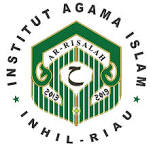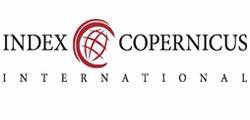Pemikiran Ibnu Sina tentang Pendidikan: Analisis Historis, Konseptual, dan Relevansi Kontemporer
DOI:
https://doi.org/10.61104/alz.v3i5.2393Keywords:
Ibnu Sina, pendidikan Islam, filsafat pendidikan, pembentukan karakterAbstract
Pemikiran Ibnu Sina tentang pendidikan menempati posisi penting dalam khazanah intelektual Islam karena mengintegrasikan rasionalitas, spiritualitas, dan etika dalam satu sistem pemikiran yang utuh. Penelitian ini bertujuan untuk menganalisis secara mendalam konsep pendidikan Ibnu Sina melalui pendekatan historis dan konseptual serta mengeksplorasi relevansinya dalam konteks pendidikan kontemporer. Penelitian ini menggunakan metode studi kepustakaan dengan analisis hermeneutik-filosofis terhadap karya-karya utama Ibnu Sina seperti Al-Shifāʼ, Al-Najāt, dan Al-Qānūn fī al-Ṭibb yang dikombinasikan dengan literatur sekunder modern. Hasil penelitian menunjukkan bahwa pendidikan menurut Ibnu Sina merupakan proses penyempurnaan jiwa (takamul al-nafs) menuju kebahagiaan sejati melalui pengembangan intelektual, moral, dan fisik secara holistik. Ia menolak dikotomi antara ilmu agama dan rasional, menempatkan peran guru sebagai penuntun spiritual, dan menekankan pentingnya kurikulum yang adaptif terhadap perkembangan peserta didik. Implikasi penelitian ini menegaskan bahwa pemikiran Ibnu Sina masih relevan dalam membangun paradigma pendidikan Islam modern yang humanistik, integratif, dan berorientasi pada pembentukan karakter serta kesadaran sosial
References
Al-Attas, S. M. N. (1991). The concept of education in Islam: A framework for an Islamic philosophy of education. ISTAC.
Arthur, J., Kristjánsson, K., Walker, D., Sanderse, W., & Jones, C. (2017). Character education in universities: A framework for flourishing. Routledge.
Biesta, G. (2020). Good education in an age of measurement: Ethics, politics, democracy. Routledge.
Black, P., & Wiliam, D. (1998). Assessment and classroom learning. Assessment in Education: Principles, Policy & Practice, 5(1), 7–74. https://doi.org/10.1080/0969595980050102
Daiber, H. (2012). Islamic thought in the dialogue of cultures. De Gruyter.
Fakhry, M. (2015). A history of Islamic philosophy. Routledge.
Gardner, H. (1983). Frames of mind: The theory of multiple intelligences. Basic Books.
Goodman, L. E. (1992). Avicenna. Routledge.
Gutas, D. (2014). Avicenna and the Aristotelian tradition: Introduction to reading Avicenna’s philosophical works. Brill.
Haq, S. N. (2000). Avicenna’s epistemology: Between logic and mysticism. Islamic Studies, 39(3), 389–406.
Ibn Sīnā. (1952). Al-Shifāʼ. Dār al-Kutub al-ʿIlmiyyah.
Ibn Sīnā. (1980). Al-Qānūn fī al-Ṭibb [The canon of medicine]. Al-Maktabah al-Taufiqiyyah.
Masic, I., Dilic, M., Solakovic, E., Rustempasic, N., & Ridjanovic, Z. (2012). The canon of medicine: Avicenna’s contribution to medicine. Medical Archives, 66(2), 140–142. https://doi.org/10.5455/medarh.2012.66.140-142
Nasr, S. H. (1968). Science and civilization in Islam. Harvard University Press.
Nasr, S. H., & Leaman, O. (Eds.). (1996). History of Islamic philosophy. Routledge.
Nejad, M. B., Nejad, M. J., & Nejad, A. M. (2013). Avicenna’s educational views with emphasis on the education of children. Iranian Journal of Public Health, 42(1), 85–89.
Nussbaum, M. (2010). Not for profit: Why democracy needs the humanities. Princeton University Press.
OECD. (2022). Education at a glance 2022: OECD indicators. OECD Publishing. https://doi.org/10.1787/69096873-en
OECD. (2023). Future of education and skills 2030: OECD learning compass. OECD Publishing.
Piaget, J. (1972). The psychology of the child. Basic Books.
Putnam, R. D. (2000). Bowling alone: The collapse and revival of American community. Simon & Schuster.
Rahman, F. (1975). The philosophy of Mulla Sadra. State University of New York Press.
Rasyid, I. (2019). Konsep pendidikan Ibnu Sina tentang tujuan pendidikan, kurikulum, metode pembelajaran, dan guru. Ekspose: Jurnal Penelitian Hukum dan Pendidikan, 18(2), 122–134.
Rosenthal, F. (1970). Knowledge triumphant: The concept of knowledge in medieval Islam. Brill.
Seligman, M. E. P. (2018). PERMA and the building blocks of well-being. Springer.
Sockett, H. (1993). The moral base for teacher professionalism. Teachers College Press.
UNESCO. (2023). Reimagining our futures together: A new social contract for education. UNESCO Publishing.
Vygotsky, L. S. (1978). Mind in society: The development of higher psychological processes. Harvard University Press.
Walbridge, J. (2001). The wisdom of the mystic East: Suhrawardi and Platonic orientalism. State University of New York Press.
Zins, J. E., Weissberg, R. P., Wang, M. C., & Walberg, H. J. (2007). Building academic success on social and emotional learning: What does the research say? Teachers College Press.
Downloads
Published
How to Cite
Issue
Section
License
Copyright (c) 2025 Pardian Rivai Hidayatullah, Ita Tyas Nur Rochbani

This work is licensed under a Creative Commons Attribution-ShareAlike 4.0 International License.












 This work is licensed under a
This work is licensed under a 